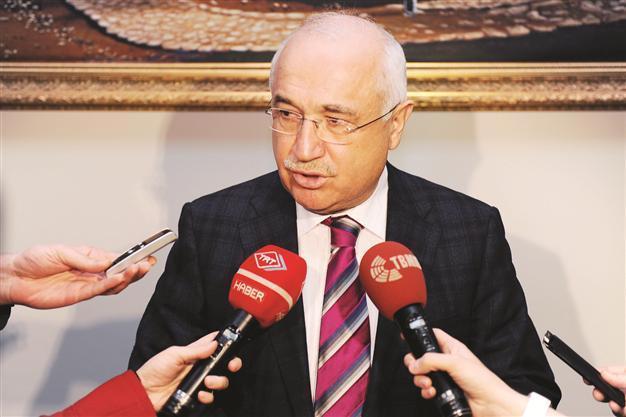System debate disrupts charter process: Parliament speaker Çiçek
ANKARA - Hürriyet Daily News

Parliament Speaker Cemil Çiçek says the upcoming elections in the next two years are creating a power ambiguity. AA photo
Parliamentary Speaker Çiçek says the upcoming elections in the next two years are creating a power ambiguity.
he Parliament speaker called on political parties to draft a new charter without delay, warning that failure to do so would bring complicated problems in the near future particularly regarding the powers of the prime minister and president.
“It’s hard to write a new charter in an election atmosphere,” Parliament Speaker Cemil Çiçek said at a meeting with the Diplomatic Correspondent’s Association yesterday, adding that the new Constitution should be drawn up before three major elections.
The Parliament speaker likened the upcoming situation of the prime minister and president to two trains traveling on the same railroad. “Both will be elected by people. The president will be a chief executive who is elected with higher votes. There will be power ambiguity on many issues,” he noted.
Local elections are scheduled for March 2014, followed a few months later by a presidential poll, while a general election is set for 2015.
System debate
Citing that executive power is entirely connected to governing systems, Çiçek said “system debate” on whether a presidential or parliamentarian system would be applied caused “deadlock” in the Constitution-making process.
“As this debate has not ended yet, parts of the charter other than the legislative organ could not be drafted, and it’s not possible to draft [those parts]. Under which [governing] system will they be drafted?” he asked.
Therefore, the commission was working to draft more general articles of the Constitution, Çiçek noted.
The speaker also warned that failure to write a new text would tarnish Turkey’s image as a “role model” in the region, noting that countries affected by the Arab Spring had adopted their own new charters in the aftermath of the civilian uprisings.
Çiçek called on judicial chiefs for court practices that would concur with what the government seeks in judicial reform packages.
Long detentions are manifesting political problems as the judiciary could not solve them at the time, he added.
The peace process on the Kurdish issue is under the responsibility of the government, not Parliament, Çiçek said, adding that establishment of a “wise-men commission” is not possible under the current legislation since those “wise men” are not lawmakers. “The prime minister said that the interlocutor of this work is government,” Çiçek said.
Kurds might have some demands for a new charter but referring to the peace process directly in Constitution making could create problems since the perspectives of the four political parties are different from one another. The solution of the Kurdish issue is above politics, he added.
